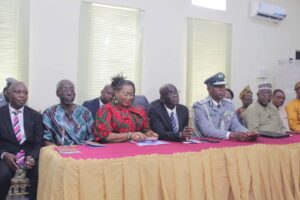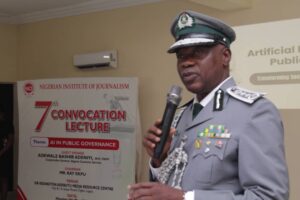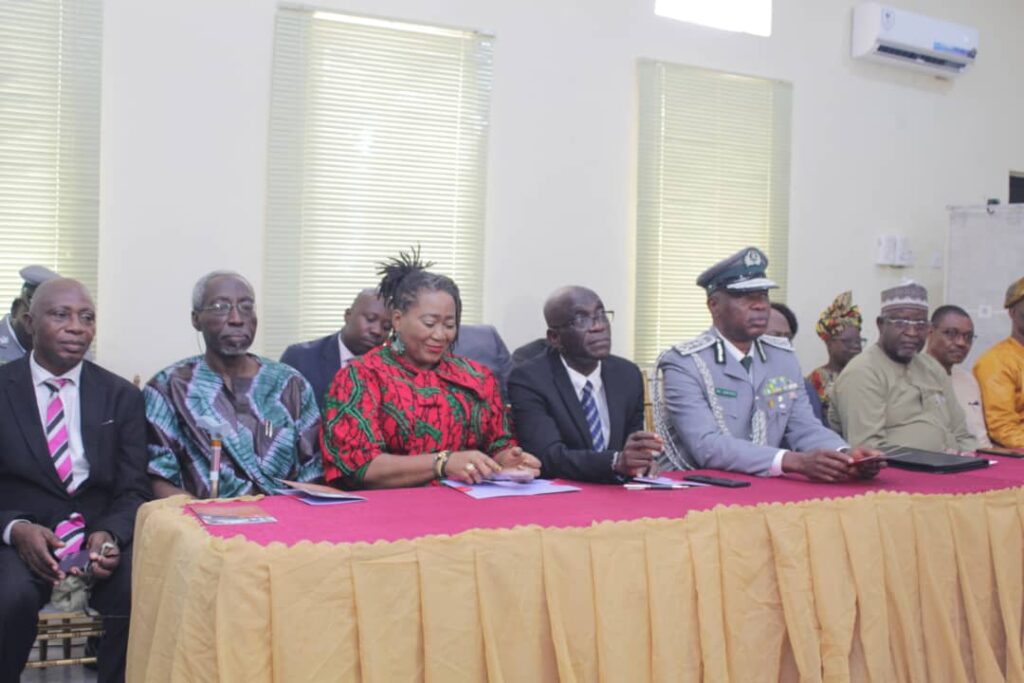The Comptroller-General of the Nigeria Customs Service, Alhaji Bashir Adewale Adeniyi, has emphasized both the potential and concerns surrounding the use of Artificial Intelligence (AI) in governance, urging media professionals to be intentional about tech literacy and ethical considerations when holding the government accountable.
He made this statement while delivering the convocation lecture at the Nigerian Institute of Journalism (NIJ) on Monday, May 5, at the Sir Kesington Adebukunola Adebutu Media Resource Centre, Ogba, Lagos.
According to the Customs Chief, “The global AI governance space here in Nigeria presents both challenges and opportunities. With only seven African nations having drafted National AI strategies and none of them implementing formal AI regulation, substantial efforts are required to advance regulatory frameworks in our continent.”
He stressed that Africa must develop AI solutions tailored to its specific socio-political and economic needs, rather than importing foreign AI infrastructures in a “copy-and-paste” fashion, which may not be practical.
Alhaji Adeniyi, a former Vice President and Council Member of the Nigerian Institute of Public Relations (NIPR), spoke on the theme: “AI and Public Governance.”
He delved into various critical facets of the nexus between AI adoption in Nigeria and modern governance structures, including theoretical foundations, global approaches, the challenges of global AI governance in Africa, key roadmaps to AI application in governance, ethical complications, and best practices in AI governance reporting.
Citing examples of machine learning techniques used in the criminal justice system, he noted that one of the key challenges is the potential bias and discrimination in AI tools. He emphasized that journalists reporting on the intersection of AI and governance must ask the right questions such as: Who is benefiting from these solutions? At what cost? And what public good do they serve?
In his words to media scholars, “While you may not all need to become AI experts, you must develop sufficient technical literacy to be able to ask meaningful questions and evaluate the claims of experts.
“As graduating students, see AI governance as a technical beat. Through rigorous investigation, you can help citizens understand and engage with AI systems that can help shape their lives.”
He acknowledged that AI hiring tools used across various levels of government may carry algorithmic biases and should therefore be developed to suit local realities. He also pointed out the limited access to data and automated software, which hinders innovation, particularly among Nigerian entrepreneurs.
On how journalists should navigate AI disruption in the profession, the CG said that the ability to engage sources for news stories remains a crucial advantage for human journalists, as it provides authentic, diverse storytelling unlike the generic output of AI.
“Remember that many editors in newsrooms today developed their craft with painstaking research and manual processes. So when you submit work that lacks granular details and the unique voice that comes from direct engagement with sources, these editors can immediately recognize AI-assisted copies.”
In his remarks, the Provost of NIJ, Mr. Gbenga Adefaye, reiterated that AI is the future of media. “If we don’t learn and master AI, we might become a slave to it,” he added.
Also present at the lecture were distinguished officers of the Nigeria Customs Service, members of the NIJ Governing Council including the Vice Chairman, Mr. Ray Ekpu, former Managing Director/Editor in Chief at The Guardian Newspaper Mr. Martins Oloja (who moderated the lecture), members of the Academic Board, lecturers, journalists, and students.
The lecture preceded the institution’s convocation ceremony, which will take place on Tuesday, May 7. A total of 707 convocands from 2022 to 2024 academic sessions will be awarded certificates.
Graduands will receive certificates in the National Diploma (ND), Higher National Diploma (HND), and Post-Graduate Diploma (PGD) categories. Sixty students will graduate with Distinction, while others will earn Upper Credit, Lower Credit, and Pass grades.

Members of NIJ Council, Dr Sanya Awosan, Lanre Ogundipe, Dr Nkechi Ali-Balogun, NIJ Provost, Gbenga Adefaye, NIJ Vice chairman, Ray Ekpu, and Alhaji Garba Bello Kankarofi at the 7th Convocation lecture of the Nigerian Institute of Journalism, Ogba, Lagos.

The Comptroller-General of Customs, Bashir Adewale Adeniyi MFR, delivering convocation lecture on “AI in Public Governance” at NIJ, Ogba, Lagos on Monday, May 5

